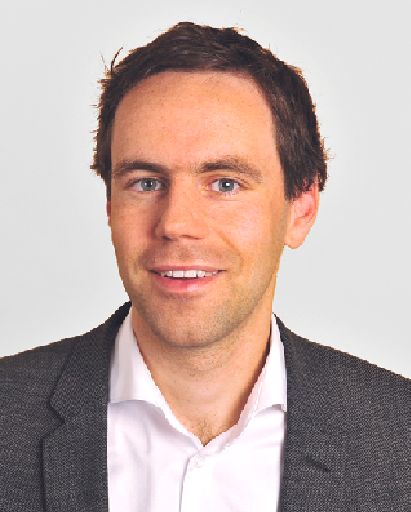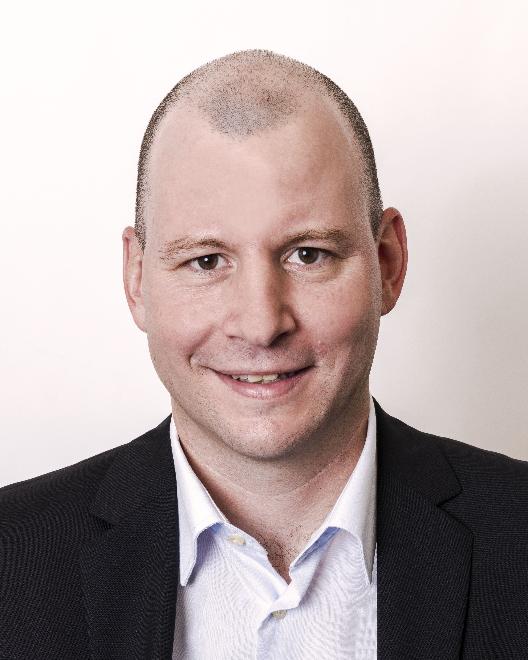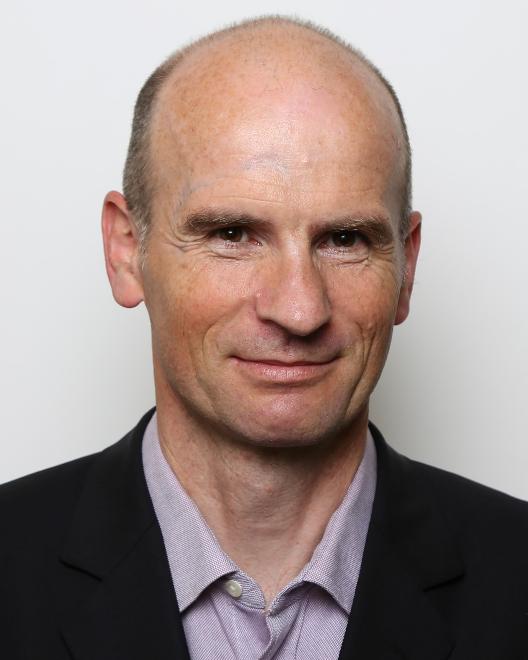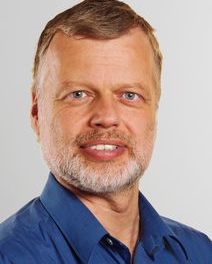Members

Julian Marewski
Professor
Head of the Departement
Julian.Marewski@unil.ch
Internef, office 601
Tel 021 692 33 81
Julian Marewski (Full Professor) is a cognitive and decision scientist, interested in understanding what strategies people use to solve decision problems and which ones could help them to make better decisions. As decision processes cut across disciplinary boundaries, so do his research and teaching interests. Currently, he is interested in simple, actionable rules for leadership and other ill-structured inter-personal tasks in applied real-world settings. He examines the usage of such rules in various modern-day professional (e.g., in business, aviation, military), historical (e.g., ancient Roman and Comanche warfare), and societal (e.g., sects, crime) contexts.
Research. In general, Marewski is interested in how and when particularly simple strategies, dubbed heuristics or simple rules, can aid making clever decisions in different domains. A central theme of his inter-disciplinary work is how the interplay between strategies and the environment shapes performance and behavior. Tackling this question often requires studying (i) the structure of environments and (ii) how decisional processes depend on components of cognition that are key for perceiving and/or representing the environment. For instance, Marewski has modeled how people select between heuristics as a function of how memory nestles into the structure of informational environments. In so doing, he has asked when people use heuristics that exploit memory retrieval processes (e.g., retrieval fluency, recognition). To give another example, currently he is interested in how social environments can push people to perform acts they may otherwise not perform (e.g., to fight); to this end he also studies historical events (e.g., in war).
Further areas of interest can be inferred via his full list of publications. They cut across diverse areas, from decision making and rationality, specific heuristics (e.g., the recognition heuristic), their cognitive underpinnings (e.g., memory), to applications of research on heuristics (e.g., to management, medicine, polling) and ecological approaches to cognition (e.g., Chimpanzee memory), with the unifying question of his cross-disciplinary interests being how the mind adapts to its environments.
Marewski's research makes use of a variety of tools and data (e.g., experiments, computer simulation methods). For instance, while historical sources and interviews with experienced professionals inform some of his current interests, he has conducted computer simulations and laboratory experiments to understand how people select among the decision strategies in their repertoire, working with detailed computational models of cognition (i.e., the ACT-R cognitive architecture).
Marewski has published in Psychological Review, Psychonomic Bulletin & Review, Journal of Applied Research in Memory and Cognition, Journal of Management, Journal of Operations Management, Conservation Biology, Behavior Research Methods, Dialogues in Clinical Neuroscience, Royal Society Open Science, and other outlets. His research has been funded, for instance, by the Swiss National Science Foundation. He is an Associate Editor for the journal Mind & Society (Springer) as well as for the journal Frontiers in Research Metrics and Analytics (Section Research Methods). He has been on the editorial board of the Journal of Applied Research in Memory and Cognition, and acted as guest editor for that journal as well as for Judgment and Decision Making and the Journal of Behavioral Decision Making. He has also acted as ad hoc reviewer for several international funding agencies and scientific journals in different disciplines.
Teaching. Marewski teaches at the executive (EMBA, MBA, CAS), PhD, Master, and Bachelor-level. Marewski also teaches managers (e.g., board of directors) in company-tailored programs. For example, he has taught statistics, data analytics and quantitative methods for management, as well as courses on leadership, organizational behavior, and soft-skills and his teaching portfolio also includes cognitive psychology. Furthermore, Marewski has trained specialized audiences (e.g., managers, doctors) in areas such as decisional leadership, medical decision making, risk-communication (e.g., in health care), or data ethics and data risks (e.g., in business). Marewski uses the case method of teaching.
Additional information:
- Bounded rationality
- Decision making processes
- Heuristics
- Simple rules for leadership
- Tracing decision making processes in different disciplines and professions
- Ecological theories of human cognition, notably how decision making and memory processes are shaped by the environment
-
Marewski J. N., Schooler L. J. (2011). Cognitive niches: An ecological model of strategy selection. Psychological Review, 118, 393-437.
-
Marewski, J. N. (2023). Narratives, environments, and decision-making: A fascinating narrative, but one to be completed. (Commentary.) Behavioral and Brain Sciences, 46:e102.
-
de Treville, S., Browning, T., Marewski, J. N., Weiss, J. (2023). Editorial: Toyota production system practices as fast-and-frugal heuristics. Journal of Operations Management, 69, 522-535.
-
Hicks J. S., Burgman M. A., Marewski J. N., Fidler F., Gigerenzer G. (2012). Decision making in a human population living sustainably. Conservation Biology, 26, 760-768.
-
Stevens J. R., Marewski J. N., Schooler L. J., Gilby I. C. (2016). Reflections of the social environment in chimpanzee memory: Applying rational analysis beyond humans. Royal Society Open Science, 3, 160293.
-
Gaissmaier W., Marewski J. N. (2011). Forecasting elections with mere recognition from small, lousy samples: A comparison of collective recognition, wisdom of crowds, and representative polls. Judgment and Decision Making, 6, 73-88.
-
Marewski J. N., Gigerenzer G. (2012). Heuristic decision making in medicine. Dialogues in Clinical Neuroscience, 14, 77-89.
-
Gigerenzer G., Marewski J. N. (2015). Surrogate science: The idol of a universal method for scientific inference. Journal of Management, 41, 421-440.
-
Hoffrage U., & Marewski J. N. (2015). Unveiling the Lady in Black: Modeling and aiding intuition. Journal of Applied Research in Memory and Cognition, 4, 145-163.
-
Hafenbrädl S., Waeger D., Marewski J. N., Gigerenzer G. (2016). Applied decision making with fast-and-frugal heuristics. Journal of Applied Research in Memory and Cognition, 5, 215-231.
-
Marewski J.N., Bröder A., & Glöckner A. (2018). Some metatheoretical reflections on adaptive decision making and the strategy selection problem. Journal of Behavioral Decision Making, 31, 181-198.
-
Dimov, C., Khader, P.H., Marewski, J.N., & Pachur, T. (2020). How to model the neurocognitive dynamics of decision making: A methodological primer with ACT-R. Behavior Research Methods, 52, 857–880.
-
Marewski J. N., Gaissmaier W., Schooler L. J., Goldstein D. G., Gigerenzer G. (2010). From recognition to decisions: Extending and testing recognition-based models for multialternative inference. Psychonomic Bulletin & Review, 17, 287-309.
Current courses
Heuristic Decision-Making Strategies – MScM and PhD in Management, 2nd year, 6 credits (since 2018)
Organizational soft-skills: From presentation techniques to group management – Bachelor, 3rd year, 3 credits (since 2019)
Simple Rules for Leadership and Strategy: a Practical Approach – MScM, 1st year, 6 credits (since 2021)
Data Analytics – EMBA (since 2018)
Various in Executive Education over the past years (e.g., Decisional leadership / Leadership décisionnel; Data innovation, privacy and risks)
Past courses
Applied Organizational Behavior and Management I – Bachelor, 3rd year, 3 credits (2011-2012; 2014-2018)
Management Science – MScM, 1st year, 6 credits (2011-2016, 2018)
Comportement Organisationnel et Management Appliqué I – Bachelor, 3rd year, 3 credits (2013)
Advanced Management Science – MScM, 2nd year, 6 credits (2016)
Big Data: Advanced Quantitative Tools to Manage People and Institutions – MScM, 1st year, 6 credits (2017)
Data-Driven Business - MScM, 1st year, 6 credits (2019-2020)
Statistics – EMBA (2012-2017)
Others (examples):
- Courses on quantitative methods for management, on problem-solving, and in cognitive psychology (e.g., MBA, Executive training, Master)
John Antonakis is Professor of Organizational Behavior in the Faculty of Business and Economics of the University of Lausanne, Switzerland. Professor Antonakis’ research is currently focused on charisma, predictors of leadership, leader development, as well as on research methods. He has published articles in many prestigious journals including Science, Nature Human Behavior, Psychological Science, Academy of Management Journal, Journal of Management, Journal of Applied Psychology, Journal of Operations Management, Entrepreneurship Theory and Practice, and Harvard Business Review, among many others; he has also published four books, and dozens of book chapters and conferences proceedings. He has received more than US$2.45 million in funding for his research.
Prof. Antonakis is Editor of The Leadership Quarterly. He was previously associate editor for The Leadership Quarterly and Organizational Research Methods; he has also served on the editorial boards of several top journals in management and applied psychology. In 2019 he was named a highly cited scientist by Clarivate-Web of Science group. In 2020 he was listed by PLOS Biology in the world’s top 2% of scientists for career-long impact.
His research is regularly quoted in the press and various media outlets including the New York Times, The Wall Street Journal, Financial Times, The Guardian, NEWSWEEK, TIME, BBC News, The Economist, Forbes, The New Yorker, Fast Company and many hundreds of other news sources, including TV and Radio.
Additional information:
UNIL-Webpage Personnal website Google Scholar Citations ResearchGate CV Biography Twitter Videos of Charisma Experiments
- Leadership and power
- Individual differences
- Research methods
- Causal analysis
- Antonakis, J., d’Adda, G., Weber, R. A., & Zehnder, C. (2021). Just words? Just speeches? On the economic value of charismatic leadership. Management Science.
- Antonakis, J., Bastardoz, N., & Rönkkö, M. (2021). On ignoring the random effects assumption in multilevel models: Review, critique, and recommendations. Organizational Research Methods, 24(2)443-483.
- Antonakis, J., Simonton, D. K., & House, R. J. (2017). Can super smart leaders suffer from too much of a good thing? The curvilinear effect of intelligence on perceived leadership behavior. Journal of Applied Psychology, 102(7), 1003-1021.
- Antonakis, J., & Dalgas, O. (2009). Predicting elections: Child's play! Science, 323, 1183.
- Antonakis, J., Bendahan, S., Jacquart, P., & Lalive, R. (2010). On making causal claims: A review and recommendations. The Leadership Quarterly, 21(6). 1086-1120.
- Sturm, R. E., & Antonakis, J. (2015). Interpersonal power: A Review, critique, and research agenda. Journal of Management, 41(1), 136-163.
- Jacquart, P., & Antonakis, J. (2015). When does charisma matter for top-level leaders? Effect of attributional ambiguity. Academy of Management Journal, 58(4), 1051-1074.
- Antonakis, J. (2017). On doing better science: From thrill of discovery to policy implications. The Leadership Quarterly, 28(1), 5-21.
- Fischer, T., Dietz, J., & Antonakis, J. (2017). Leadership process models: A review and Synthesis. Journal of Management, 43(6), 1726-1753.
- Lonati, S., Quiroga, B. F., Zehnder, C., & Antonakis, J. (2018). On doing relevant and rigorous experiments: Review and recommendations. Journal of Operations Management, 64, 19-40.
Current courses
Comportement organisationnel – Bachelor, 1st year, 3 credits (since 2005)
Causal Analysis and Structura Equation Modeling – PhD in Management, 6 credits (since 2009)
Qualitative and Mixed-Methods Research – PhD in Management, 3 credits (since 2016)
Leadership – EMBA (since 2007)
Past courses
Encadrement et comportement I – Licence management, 2nd year, 3 credits (2001-2005)
Encadrement et comportement II – Licence management, 3rd and 4th year, 3 credits (2001-2005)
Gestion des ressources humaines I – Licence management, 3rd and 4th year 3 credits (2002-2006)
Experiments with People: Design and Analysis – MScM 5.1: International / OB, 6 credits (2006)
Leadership et prise de decision – MAS en gestion des ressources humaines et des carriers (UNINE, UNIGE, UNIL), 2 credits (2007-2010)
Course currently taught by other colleague
Leadership Development – MScM & MScE, 1st year & MDE, Module 2, 3 credits (since 2005) – taught by Samuel Bendahan since 2009
Joerg Dietz earned his Ph.D. degree in Business Administration (Organizational Behavior) from Tulane University in 2000. He subsequently joined the Richard Ivey School of Business at the University of Southwestern Ontario, where he became an Associate Professor in 2005. In 2009, Joerg started at the Faculty of Business and Economics at the University of Lausanne as a Full Professor. He had a first term as department head from 2009 until 2012, before serving as a vice-dean for from 2012 until 2018. Prior to his academic career, Joerg enjoyed a ten-year career in investment banking.
His research interests include workforce diversity, leadership, organizational cultures and climates as well as cross-cultural management. He has published in journals such as the Academy of Management Journal, Journal of Applied Psychology, and Journal of Management, and he serves on numerous editorials boards including those of Leadership Quarterly and Organizational Research Methods,. His papers have won three different Academy-of-Management awards, and the National Science Foundations of Canada and Switzerland have repeatedly sponsored his work.
Joerg has taught courses on organizational behavior, organizational change, leadership, research methods, cross-cultural management, and evidence-based management in Austria, Canada, Germany, Hong Kong, Turkey, Switzerland, and the United States. He has co-authored a textbook on cross-cultural management and he published numerous case studies.
Additional information:
UNIL-Webpage Google Scholar Citations ResearchGate Personnal website
- Workforce Diversity
- Leadership
- Organizational Culture and Climate
- Organizational Change
- Contextual Antecedents of Organizational Behavior.
- Kleinlogel, E. P., Dietz, J., & Antonakis, J. (2018). Lucky, competent, or a just a cheat? Lucky, competent, or a just a cheat? Interactive effects of trait honesty and moral cues on cheating behavior. Personality and Social Psychology Bulletin, 44(2), 158-172.
- Fischer, T., Dietz, J., & Antonakis, J. (2017). Leadership process models: A review and synthesis. Journal of Management, 43(6), 1726-1753.
- Dietz, J., Antonakis, J., Hoffrage, U., Krings, F., Marewski, J., & Zehnder, C. (2014). Teaching evidence-based management with a focus on producing local evidence. Academy of Management Learning & Education, 13(3), 397-414.
- Pugh, S. D., Dietz, J., Brief, A. P., & Wiley, J. W. (2008). Looking inside and out: The impact of employee and community demographic composition on organizational diversity climate. Journal of Applied Psychology, 93(6), 1422-1428.
- Petersen, L. E., & Dietz, J. (2008). Employment discrimination: Authority figures’ demographic preferences and followers‘ affective organizational commitment. Journal of Applied Psychology, 93(6), 1287-1300.
- Umphress, E. E., Smith-Crowe, K., Brief, A. P., Dietz, J., & Watkins, M. B. (2007). When birds of a feather flock together and when they do not: Status composition, social dominance orientation, and organizational attractiveness. Journal of Applied Psychology, 92(2), 396-409.
- Brief, A. P., Umphress, E. E., Dietz, J., Burrows, J. W., Butz, R. M., & Scholten, L. (2005). Community matters: Realistic group conflict theory and the impact of diversity. Academy of Management Journal, 48(5), 830-844.
- Dietz, J., Pugh, S. D., & Wiley, J. W. (2004). Service climate effects on customer attitudes: An examination of boundary conditions. Academy of Management Journal, 47(1), 81-92.
- Dietz, J., Robinson, S. L., Folger, R., Baron, R. A., & Schulz, M. (2003). The impact of community violence and an organization’s procedural justice climate on workplace aggression. Academy of Management Journal, 46(3), 317-326.
- Brief, A. P., Dietz, J., Cohen, R. R., Pugh, S. D., & Vaslow, J. B. (2000). Just doing business: Modern racism and obedience to authority as explanations for employment discrimination. Organizational Behavior and Human Decision Processes, 81(1), 72-97.
Current courses
Comportement Organisationnel – Bachelor, 1st year, 3 credits (since 2012)
Evidence-Based Management – MScM, 1st year, 6 credits (since 2014)
Managing People : Organizational Design, Change, and Performance – MScM, 1st year, 6 credits (since 2020)
Leading Organizational Culture and Change – EMBA (since 2009)
Past courses
Cross-cultural Management – MScM, 1st year, 6 credits (2009-2013)
Research Methods – MScM, 1st year, 6 credits (2009-2010)
Scientific Methods for Business – MScM, 1st year, 6 credits (2010-2013)
Theories of Organizational Behavior – MScM, 1st year and PhD in Management, 6 credits (2010 – 2018)
Change Management – Several Executive Education Progams
After Charles Efferson received a Ph.D. in evolutionary ecology at the University of California, Davis, he had post-doctoral positions at the Santa Fe Institute in New Mexico and at the Institute for Empirical Research in Economics at the University of Zurich. Before coming to the University of Lausanne, Charles was also a Senior Research Associate in the Economics Department at the University of Zurich, followed by a period as Lecturer in the Psychology Department at Royal Holloway, University of London.
Charles' research focuses on the gene-culture coevolution of human social cognition and behavior in domains involving conformity, coordination, and cooperation. He routinely mixes evolutionary modeling with the analysis of both experimental and observational data. Charles has conducted fieldwork in Europe, Western Asia, Africa, and South America. Much of his current empirical research examines the mechanisms underlying socially harmful cultural traditions like female genital cutting and the preferential abortion of females. This research typically involves the evaluation of strategies for reversing such harmful traditions, and accordingly Charles has collaborated extensively with UNICEF, the World Bank, and various NGOs.
Among other journals, Charles has published in Evolution and Human Behavior, Nature Human Behaviour, Proceedings of the Royal Society B, Proceedings of the National Academy of Sciences, Science, and Nature. He is consulting editor for Evolution and Human Behavior and a member of the editorial board for Evolutionary Human Sciences.
Additional information:
- Harmful cultural traditions
- Diffusion of beneficial innovations
- Social learning and cultural evolution
- The evolution of human social cognition and behavior
- Burkart, J. M., Fehr, E., Efferson, C., and van Schaik, C. P. (2007). Other-regarding preferences in a nonhuman primate: common marmosets provision food altruistically. Proceedings of the National Academy of Sciences. 104: 19762-19766.
- Efferson, C., Lalive, R., Richerson, P. J., McElreath, R., and Lubell, M. (2008). Conformists and mavericks: the empirics of frequency-dependent cultural transmission. Evolution and Human Behavior. 29: 56-64.
- Efferson, C., Lalive, R., and Fehr, E. (2008). The coevolution of cultural groups and ingroup favoritism. Science. 321: 1844-1849.
- McKay, R. and Efferson, C. (2010). The subtleties of error management. Evolution and Human Behavior. 31: 309-319.
- Efferson, C., Vogt, S., Elhadi, A., Ahmed, H. E. F., and Fehr, E. (2015). Female genital cutting is not a social coordination norm. Science. 349: 1446-1447.
- Vogt, S., Zaid, N. A. M., Ahmed, H. E. F., Fehr, E., and Efferson, C. (2016). Changing cultural attitudes on female genital cutting. Nature. 538: 506-509.
- Efferson, C. and Vogt, S. (2018). Behavioural homogenisation with spillovers in a normative domain. Proceedings of the Royal Society B. doi: 10.1098/rspb.2018.0492.
- Schief, M., Vogt, S., and Efferson, C. (2021). Investigating the structure of son bias in Armenia with novel measures of individual preferences. Demography. 58: 1737–1764.
- Efferson, C., Vogt, S., and Fehr, E. (2020). The promise and the peril of using social influence to reverse harmful traditions. Nature Human Behaviour. 4: 55-68.
- Efferson, C., McKay, R., and Fehr, E. (2020). The evolution of distorted beliefs versus mistaken choices under asymmetric error costs. Evolutionary Human Sciences. 2: e27.
Current courses
Introduction to Bargaining and Negociations – Bachelor, 3rd year, 3 credits (since 2019)
Bargaining and Negociations – MScM, 1st year, 6 credits (since 2019)
Human Behavior and Evolutionary Inference – MScM & MScE, 2nd year, 6 credits (since 2019)
Ulrich Hoffrage is Full Professor of Organizational Behavior at HEC Lausanne, University of Lausanne, and the Director of the School’s Master of Science in Management program.
His research interests include judgment and decision making (in particular: ethical, managerial, consumer, medical and group decision making), and simple heuristics as models of bounded rationality. Moreover, he also contributed to the literature on cognitive illusions (e.g., overconfidence and hindsight bias), risk communication, and decision support systems. He is fascinated by the complex interplay between the co-evolution of individuals and their environments.
He published in journals such as Science, Psychological Review, Psychological Bulletin and his research (about 100 publications) is well received (>9200 citations in Scholar.Google; >3200 in Web of Sciences).
He studied psychology in Konstanz (Germany), and obtained his PhD in Salzburg (Austria). Before he joined HEC Lausanne in 2004, he was a senior researcher at the Max Planck Institute for Human Development (Berlin).
Additional information:
- bounded rationality
- managerial decision making
- (un)ethical decision making
- psychology of risk
- Woike, J. K., Hoffrage, U., & Martignon, L. (2017). Integrating and testing natural frequencies, Naive Bayes, and fast and trees. Decision, 4, 234-260. http://dx.doi.org/10.1037/dec0000086
- Hoffrage, U., & Marewski, J. (2015). Unveiling the Lady in Black: Modeling and aiding intuition. Journal of Applied Research in Memory and Cognition, 4, 145–163. doi: 10.1016/j.jarmac.2015.08.001
- Hoffrage, U., Krauss, S., Martignon, L., & Gigerenzer, G. (2015). Natural frequencies improve Bayesian reasoning in simple and complex inference tasks. Frontiers in Psychology. 6:1473. doi: 10.3389/fpsyg.2015.01473.
- Hertwig, R., Hoffrage, U., & the ABC Research Group (2013). Simple Heuristics in a Social World. Oxford University Press.
- Palazzo, G., Krings, F., & Hoffrage, U. (2012). Ethical blindness. Journal of Business Ethics. 109, 323–338. DOI 10.1007/s10551-011-1130-4.
- Dhami, M. K., Hertwig, R., & Hoffrage, U. (2004). The role of representative design in an ecological approach to cognition. Psychological Bulletin, 130, 959–988.
- Hoffrage, U., Lindsey, S., Hertwig, R., & Gigerenzer, G. (2000). Communicating statistical information. Science, 290, 2261–2262. doi: 10.1126/science.290.5500.2261.
- Hoffrage, U., Hertwig, R., & Gigerenzer, G. (2000). Hindsight bias: A by-product of knowledge updating? Journal of Experimental Psychology: Learning, Memory, and Cognition, 26, 566–581.
- Gigerenzer, G. & Hoffrage, U. (1995). How to improve Bayesian reasoning without instruction: Frequency formats. Psychological Review, 102, 684–704. doi: 10.1037/0033-295X.102.4.684. Reprinted in: N. Chater (Ed.) (in press). Judgement and decision making. London: SAGE Publications.
- Gigerenzer, G., Hoffrage, U., & Kleinbölting, H. (1991). Probabilistic mental models: A Brunswikian theory of confidence. Psychological Review, 98, 506–528. Reprinted in W. M. Goldstein & R. M. Hogarth (Eds.) (1997). Research on judgment and decision making: Currents, connections, and controversies (pp. 95–143). Cambridge: Cambridge University Press.
Current courses
Judgement and Decision Making – Bachelor, 3rd year, 3 credits (since 2005)
Risk Savvy – Bachelor, 3rd year, 3 credits (since 2018)
Managerial Decision Making – MScM, 2nd year & MDE, Module 2, 6 credits (since 2005)
Séminaire : Jugement et prise de décision – Bachelor, 3rd year, 3 credits (since 2011)
Unethical Decision-Making Basics – MScM, MScF and PhD in Management, 2nd year & MDE, Module 2, 3 credits (since 2016)
Unethical Decision Making Advanced – MScM, MScF and PhD in Management, 2nd year & MDE, Module 2, 3 credits (since 2016)
Past courses
Risk Theory Lecture & Seminar – MScM, 1st year, 3 credits (2005)
Psychology of Risk – MScM, 5.1 International/OB/Marketing options, 3 credits (2006-2007)
Rational Judgment and Choice – MScM, 5.1 Electives, 3 credits, (2009)
Unethical Decision Making – MScM, 2nd year & MDE, Module 2, 6 credits (2009-2016)
Managerial Decision Making and Negotiations – EMBA (2006-2013)
Franciska Krings is Full Professor of Organizational Behavior at the Faculty of Business and Economics (HEC) at the University of Lausanne. She is currently elected member of the Foundation Council of the Swiss National Science Foundation and acts as president of its Compliance Committee. Between 2011 and 2016, Franciska completed a five-year mandate as vice-rector, responsible for junior faculty development and diversity, at the Direction of the University of Lausanne.
Her research interests include workforce diversity and discrimination, work-family balance, impression management, and (non)ethical behaviors. Much of her research focuses on the processes involved in discrimination based on age, gender, parenthood, and/or immigrant status on the labor market as well as on organizational measures and minority group behaviors to combat such types of discrimination. Another line of research investigates individual strategies and boundary conditions of impression management and faking in the selection context. Her work has been published in journals such as the Journal of Applied Psychology, British Journal of Management, Journal of Management Studies or the European Journal of Work and Organizational Psychology. She currently serves on the editorial boards of the International Journal of Selection and Assessment, Journal of Personnel Psychology and Social Psychology.
Additional information:
- Diversity
- Discrimination
- Age and life-course perspectives
- Impression management
- (Un)ethical behaviors
- Krings, F., Gioaba, I., Kaufmann, M., & Zebrowitz, L. (2021). Older and Younger Job Seekers’ Impression Management on LinkedIn: Similar strategies, different outcomes Journal of Personnel Psychology, 20, 21-74.
- Roulin, N. & Krings, F. (2020). Faking to Fit in: Applicants’ Response Strategies to Match Organizational Culture. Journal of Applied Psychology, 105, 130-145.
-
Steiner, R., Krings, F. & Wiese, B. (2019). Remember the Children, Honey! Spouses’ Gender-Role Attitudes and Working Mothers’ Work-to-Family Conflict Applied Psychology: International Review, 68, 250-275.
-
Gioaba I., & Krings F. (2017). Impression Management in the Job Interview: An Effective Way of Mitigating Discrimination against Older Applicants? Frontiers in Psychology, 8.
-
Kaufmann, M., Krings, F., Zebrowitz, L. & Sczesny, S. (2017). Age Bias in Selection Decisions: The Role of Facial Appearance and Fitness Impressions. Frontiers in Psychology, 1.
- Steiner, R. & Krings, F. (2017). How was your day, darling? A literature review of positive and negative crossover at the work-family interface in couples. European Psychologist, 21, 296-315.
- Johnston, C., Krings, F., Maggiori, C., Meier, L. & Fiori, M. (2016). Believing in a personal just world helps maintain wellbeing at work by coloring organizational justice perceptions. European Journal of Work and Organizational Psychology, 25, 945-959.
-
Bollmann, G. & Krings, F. (2016). Workgroup Climates and Employees’ Counterproductive Work Behaviors: A Social-Cognitive Perspective. Journal of Management Studies, 53, 184-209.
-
Roulin, N., Krings, F., & Binggeli, S. (2016). A dynamic model of applicant faking. Organizational Psychology Review, 6, 145-170.
-
Kaufmann, M., Krings, F., & Sczesny, S. (2015). Looking too old? How an older age appearance reduces chances of being hired. British Journal of Management, 27, 727-739.
Current courses
Gestion des ressources humaines : théorie et pratique – Bachelor, 3rd year, 3 credits (since 2002)
Group Processes – MScM, 1st year, 6 credits (since 2005)
How Technology Shapes the Workplace of the Future – EPFL SHS programme, Bachelor, 3rd year, 2 credits currently on hold
Applying for a Professorship – PROWD (PROfessional Women with Doctorates) (since 2017)
Past courses
Comportement Organisationnels I & II – EPFL SHS programme, Bachelor, 3rd year, 2 credits (2010-2023)
HR Management – EMBA (2007-2010)
Diversity management – EMBA (2007-2010)

Marianne Schmid Mast
Professor
Dean of HEC Faculty
Marianne.SchmidMast@unil.ch
Internef, office 251
Tel 021 692 33 41
Marianne Schmid Mast is full professor of Organizational Behavior at the University of Lausanne and Dean of the HEC Lausanne Business School. In her research, she aims at a better understanding of human interpersonal behavior, mostly at the workplace. Her research is situated at the crossroad of social psychology, management, and leadership and focuses on topics such as nonverbal behavior, first impressions, power and leadership, interpersonal communication, behavioral adaptability, responsible interpersonal behavior, interpersonal accuracy, and effects of physical environment on behavior. In her research, she uses a wide array of different research approaches, methods, and technologies: Experimental settings, simulations, role play, questionnaires, reaction time measures, implicit and explicit assessment methods, and behavioral observation and coding as well as technologies such as immersive virtual reality and automatic social sensing. Marianne Schmid Mast is a former member of the Swiss National Research Council and acted as president of the Swiss Psychological Society. She is a Society of Personality and Social Psychology (SPSP) fellow and an American Psychological Association (APA), Division 8 fellow, honored for her extraordinary, distinctive, and longstanding contributions to the science of personality and social psychology. In 2018, in 2019, and in 2020 she has been named one of the 50 most influential living psychologists.
Additional information:
- Interpersonal behavior in the workplace
- Interactions in power hierarchies
- First impressions and their accuracy
- Interpersonal skills training
- Physician-patient communication
- Virtual reality and social computing (AI)
- Renier L. A., Schmid Mast M. & Bekbergenova A. (2021). To err is human, not algorithmic – Robust reactions to erring algorithms. Computers in Human Behavior. 124. https://doi.org/10.1016/j.chb.2021.106879
- Khademi, M., Schmid Mast, M., Zehnder, C., & De Saint Priest, O. (2021). The problem of demand effects in power studies: Moving beyond power priming. The Leadership Quarterly. 32(4). https://doi.org/10.1016/j.leaqua.2021.101496
- Kleinlogel, P. E., Curdy, M., Rodrigues, J., Sandi, C. & Schmid Mast, M. (2021). Doppelganger-based training: Imitating our virtual self to accelerate interpersonal skills learning. PLOS ONE. 16(2). https://doi.org/10.1371/journal.pone.0245960
- Sato, S. Gygax P. M., Randall, J., & Schmid Mast, M. (2021). The leaky pipeline in research grant peer review and funding decisions: Challenges and future directions. The International Journal of Higher Education Research. 82, 145-162. https://doi.org/10.1007/s10734-020-00626-y
- Carrard, V., Bourquin, C., Orsini, S., Schmid Mast, M., & Berney, A. (2020). Virtual patient simulation in breaking bad news training for medical students. Patient Education and Counseling, 103(7), 1435-1438. https://doi.org/10.1016/j.pec.2020.01.019
- Schlegel, K., Palese, T., Schmid Mast, M., Rammsayer, T., Hall, J., & Murphy, N. (2020). A meta-analysis of the relationship between emotion recognition ability and intelligence. Cognition and Emotion, 34(2), 329-351. https://doi.org/10.1080/02699931.2019.1632801
- Schmid Mast, M., Khademi, M., & Palese, T. (2020). Power and social information processing. Current Opinion in Psychology, 33, 42-46. https://doi.org/10.1016/j.copsyc.2019.06.017
- Blanch-Hartigan, D., Yule, J., Hill Cummings, K., Smith, V., & Schmid Mast, M. (2019). The academic-industry divide in health communication: A call for increased partnership. Patient Education and Counseling, 102, 2330-2334. https://doi.org/10.1016/j.pec.2019.09.008
- Latu, I. M., Schmid Mast, M., Bombari, D., Lammers, J., & Hoyt, C. L. (2019). Empowering mimicry: Female leader role models empower women in leadership tasks through body posture mimicry. Sex Roles, 80(1-2), 11-24. https://doi.org/10.1007/s11199-018-0911-y
- Schmid Mast, M., & Hall, J. A. (2018). The impact of interpersonal accuracy for behavioral outcomes. Current Directions in Psychological Science, 27(5), 309-314. https://doi.org/10.1177/0963721418758437
Current courses
Interpersonal Leadership – Executive Education (since 2016)
Course currently taught by other colleague
Communication et Leadership – Bachelor, 2nd year, 4.5 credits (since 2015) – taught by Matthieu Jost and Ottilie Tilston (since 2022)
Power and Leadership – MScM, 1st year, 6 credits (since 2015) – taught by Benjamin Tur (since 2021)
Sonja Vogt’s research emphasizes the use of behavioral science to promote sustainable economic and social development. To do so, Vogt’s research uses a mix of lab, online, and field experiments to examine decision making in domains related to public health and gender, education, sustainable land management, and climate change. For example, with respect to gender, she has worked on strategies to reduce female genital cutting in Sudan and sex-selective abortion of females in Armenia. She is currently investigating the use of narratives to improve educational outcomes in South Africa and Malawi. She is also the principal investigator of a large project on digital solutions for sustainable land management among farmers with small land holdings (Agripath ) in Burkino Faso, Nepal, Uganda, Tanzania, and India.
Prof. Vogt obtained her doctorate from Utrecht University and was a post-doctoral fellow at the University of Zurich and the University of Oxford. She has published in journals such as Demography, Biological Conservation, Proceedings of the Royal Society B, Nature Human Behaviour, Science, and Nature.
She is affiliated with Nuffield College , the Centre for Experimental Social Sciences , and the Department of Sociology at the University of Oxford, and the Centre for Development and Environment at the University of Bern. She is also principal investigator of the Policy and Cultural Evolution Lab (https://pacelab.org/ ).
Additional information:
-
Development research on poverty sustainability, and public health
-
Social norms
-
Narrative communication
-
Schimmelpfennig, R., Vogt, S., Ehret, S., and Efferson, C. (forthcoming). Maximizing behavior change when people differ from each other. Bulletin of the World Health Organization. Special themed issue on Behavior and Health.
-
Berger, J., Vogt, S., Efferson, C. (forthcoming). Pre-existing fairness concerns restrict the cultural evolution and generalization of inequitable norms in children. Evolution and Human Behavior.
-
Schief, M., Vogt, S., Efferson, C. (forthcoming). The structure of son bias in Armenia: from implicit associations to explicit behavior. Demography.
-
Travers, H./Walsh, J., Vogt, S., Clements, T., Milner-Gulland, E.J. (2021).Delivering behavioural change at scale: what conservation can learn from other fields . Biological Conservation.
-
Efferson, C., Vogt, S. & Fehr, E. (2020). The promise and the peril of using social influence to reverse harmful traditions . Nature Human Behaviour.
-
Soraperra, I., Kobis, N., Efferson, C., Shalvi, S., Vogt, S., and Offerman, T. (working paper). A market for integrity. An experiment on corruption in the education sector .
-
Efferson, C. and Vogt, S. (2018). Behavioural homogenisation with spillovers in a normative domain , Proceedings of the Royal Society B. 285(1879)
-
Vogt, S., Efferson, C., and Fehr, E. (2017). The risk of female genital cutting in Europe: Comparing immigrant attitudes toward uncut girls with attitudes in a practicing country . Social Science Medicine – Population Health (3): 283-293.
-
Vogt, S., Zaid, N.A.M., Ahmed, H.E.F., Fehr, E., and Efferson, C. (2016). Changing cultural attitudes on female genital cutting . Nature, 538(7726): 506-509. (Shared first authorship with Efferson)
-
Efferson, C., Roca, C., Vogt, S., and Helbing, D. (2016). Sustained cooperation by running away from bad behavior . Evolution and Human Behavior, 37(1): 1-9.
-
Efferson, C., Vogt, S., Elhadi, A., Ahmed, H.E.F., and Fehr, E. (2015). Female genital cutting is not a social coordination norm . Science, 349: 1446-1447. (Shared first authorship with Efferson)
Current courses
Designing Sustainable Behavior – Bachelor, 3 credits (since 2022)
Social Norms Change – MScM, 1st year, 6 credits (since 2023)
The Management of Grand Challenges – MScM, 2nd year, 6 credits (since 2022)

Christian Zehnder
Professor
Vice-Dean of HEC Faculty
Christian.Zehnder@unil.ch
Internef, office 612
Tel 021 692 36 81
Christian Zehnder holds a PhD in Economics from the University of Zurich. He is Professor of Organizational Decision Making and Vice-Dean for Faculty. His research is interdisciplinary in that it combines insights from Economics, Psychology and Management and builds on various methodological approaches including laboratory experiments, field experiments and game theoretic models. Christian Zehnder is interested in understanding the behavioral drivers of decision making in organizations. His recent work focuses on two central topics in organizational research: conflict management and employee motivation. He has written a series of articles showing that the use of simple and seemingly overrigid contracts can help to diminish conflicts and counterproductive work behaviors. Most recently he became interested in studying the impact of charismatic leadership on employee performance in various organizational environments.
Additional information:
UNIL-Webpage Personal Webpage Google Scholar Citations ResearchGate
- Social Preferences
- Behavioral Contract Theory
- Leadership
- Experimental Methodology
- Antonakis J.; d'Adda G.; Weber R. and Zehnder C. (2021). Just Words? Just Speeches? - On the Economic Value of Charismatic Leadership. Management Science, Forthcoming.
- Gibbons R.; Grieder M.; Herz H. and Zehnder C. (2021). Building an Equilibrium: Rules versus Principles in Relational Contracts. Organization Science. Forthcoming.
- Khademi M.; de Saint Priest O.; Schmid Mast M. and Zehnder C. (2021). The Problem of Demand Effects in Power Studies: Moving Beyond Power Priming. The Leadership Quarterly, 32, 4, 101496.
- Lonati S.; Quiroga B.F.; Zehnder C. and Antonakis J. (2018). On doing relevant and rigorous experiments: Review and recommendations. Journal of Operations Management, 64, 19-40.
- Bartling B.; Grieder M. and Zehnder C. (2017). Competitive pricing reduces wasteful counterproductive behaviors. Journal of Public Economics, 156, 34-47.
- Zehnder C.; Herz H. and Bonardi J.-P. (2017). A productive clash of cultures: Injecting economics into leadership research. The Leadership Quarterly, 28, 65-85.
- Chassang S. and Zehnder C. (2016). Rewards and punishments: informal contracting through social preferences. Theoretical Economics, 11, 1145-1179.
- Bendahan S.; Zehnder C.; Pralong F.P. and Antonakis J. (2015). Leader corruption depends on power and testosterone. The Leadership Quarterly, 26, 101-122.
- Fehr E.; Hart O. and Zehnder C. (2015). How do informal agreements and revision shape contractual reference points?. Journal of the European Economic Association, 13, 1-28.
- Herz H.; Schunk D. and Zehnder C. (2014). How do judgmental overconfidence and overoptimism shape innovative activity?. Games and Economic Behavior, 83, 1-23.
Current courses
Theories of Organizations – PhD in Management, 6 credits (since 2010)
Past courses
Psychological Foundations of Economics – Bachelor, 3rd year, 6 credits (since 2008-2022)
Fondements psychologiques d'économie – Bachelor, 3rd year, 6 credits (2011-2014)
Behavior, Economics, and Evolution Lecture Series – MScM, 1st year, 6 credits (2016)
Course currently taught by other colleague
Organizational Theory and Decision Making – MScM, 1st year & MScE, 2nd year, 6 credits (since 2008) – taught by Manuel Grieder since 2023










